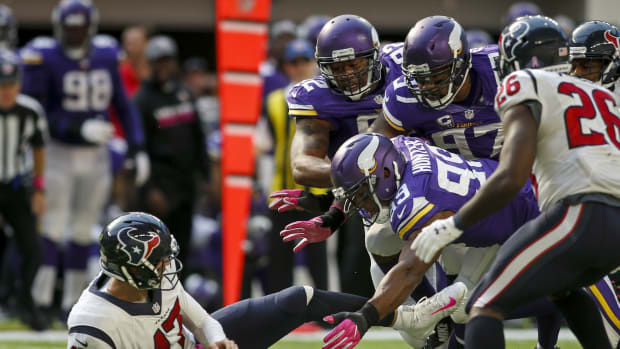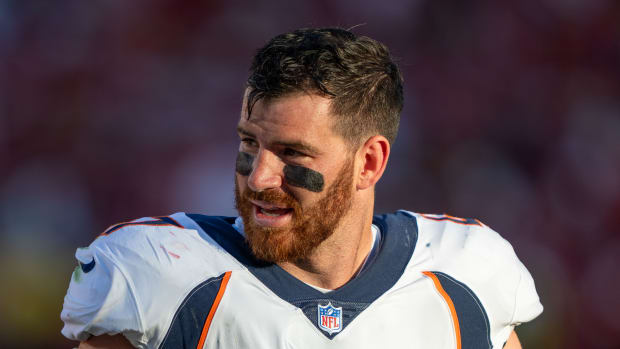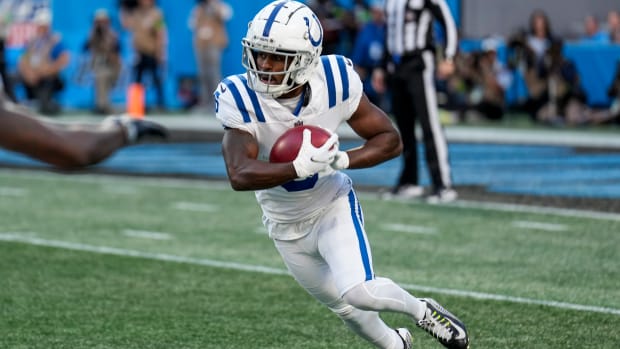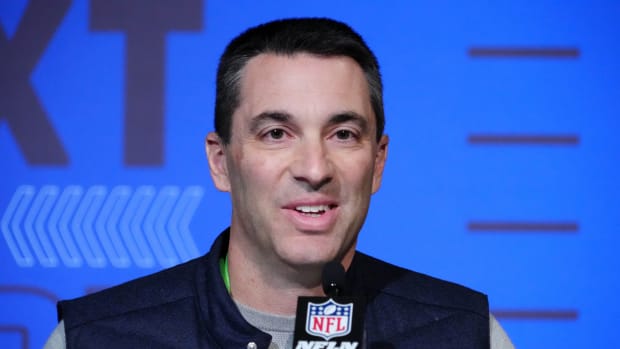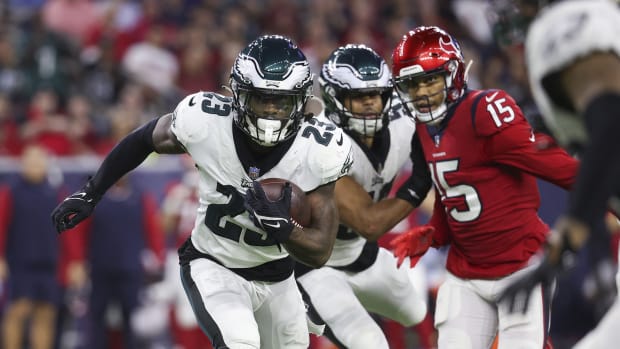Trump Has Made the NFL His Punching Bag. The League’s Best Response Is Defiance
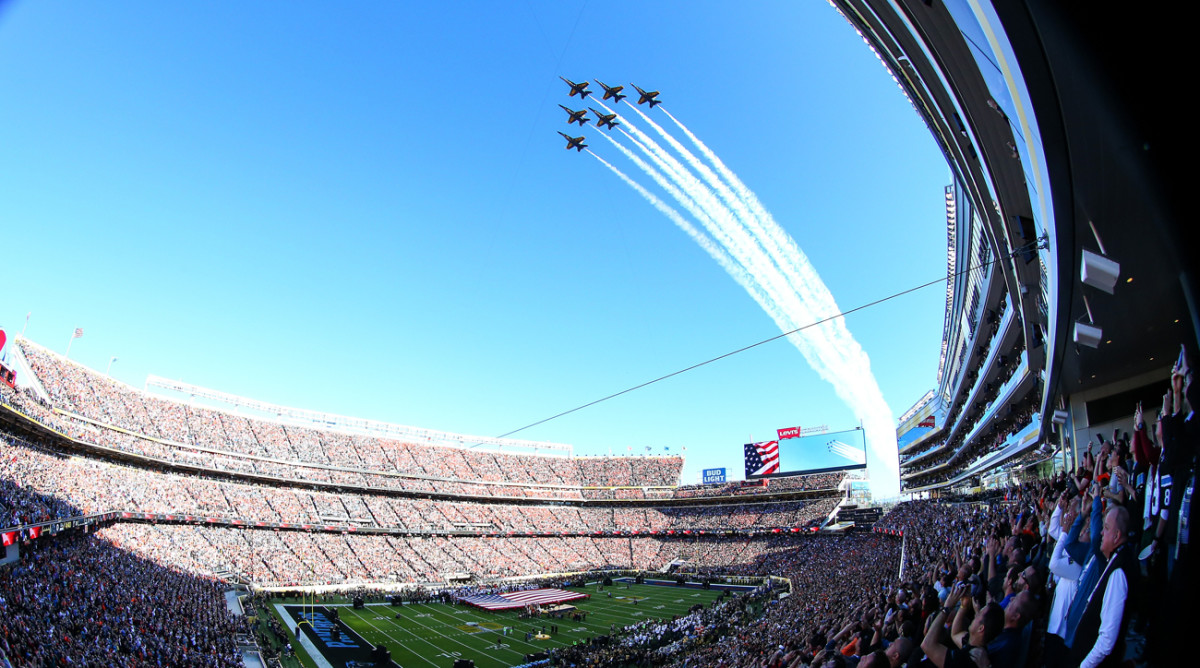
One hundred years ago this August 4, a remarkable thing happened all over Ireland. The turmoil from the Easter Rising two years earlier had not faded entirely, and relations between Ireland and the British Empire, its increasingly nominal colonial master, continued to be turbulent, and they became even more so when Britain made noises about conscripting Irishmen to supplement its troops. In the face of massive opposition, the British cracked down with their customary clumsiness. Among their other measures, they required new permits to be obtained before any hurling or Irish football matches could be played. Both of these sports were under the control of the Gaelic Athletic Association. Since its founding in 1884 the GAA had been at heart of the burgeoning Irish nationalist movement that had culminated—for the moment, anyway—in the events of Easter week in 1916. The British, rightly, concluded that the GAA’s business was not entirely arranging sporting events. In the weeks before enacting the licensing schemes, nervous British troops had disrupted various contests and hauled off a number of spectators.
Once the new licensing scheme went into effect, the GAA responded by declaring August 4, 1918, a National Day of Defiance. The GAA forbade its teams from seeking the new required permits and, instead, encouraged the hundreds of club teams salted throughout the island to compete that day untrammeled by colonial authority. (One local governing body condemned the licensing scheme as “a petty piece of absolute tyranny.”) In his proclamation of what became known as Gaelic Sunday, Luke O’Toole, the secretary-general of the GAA and rather the Pete Rozelle of traditional Irish sport, wrote:
“… under no circumstances must a permit by applied for either by Provisional councils, Co. Committees, Leagues, Tournament Committees, Clubs, or by a third party such as Secretaries of Grounds, etc. Any individual or Club infringing the foregoing order becomes automatically and indefinitely suspended.”
Contemporary accounts estimate that 54,000 people played 1,800 games that day, and that close to 100,000 people watched. In Cork, despite a drenching rain, 40 games went off without a hitch, while most of the Kerry matches were rained out entirely. Dublin’s Croke Park, the heart of the GAA, was closed by the authorities, but the local women honored the day by closing Jones Road outside the park and playing a wild game of camogie in the street. Gaelic Sunday was a genuine act of rebellion. It presaged that autumn’s elections in which Sinn Fein, the party of the Rising, swept the Irish elections for seats in Westminster, which the elected representatives then refused to take, organizing themselves into the Dail Eireann, a completely illegal but also completely functional embryonic Irish legislative body dedicated to the republic declared on the steps of the General Post Office two years earlier. Within four months of Gaelic Sunday, the Irish War of Independence was on.
(Sports, of course, played a mighty role in those subsequent events as well. On November 21, 1920, in retaliation for the decapitation of the British secret service in Dublin by IRA operatives led by Michael Collins, British troops and “Black and Tan” auxiliaries blew into Croke Park and opened fire on the crowd that was there to watch Dublin and Tipperary play Irish football, killing 13 people. One of the very few contemporary photographs of Collins has him smiling broadly at a hurling match, also in 1920, with Luke O’Toole by his side. The podium in Croke Park at which the All-Ireland trophies are handed out is named after Michael Hogan, a Tipperary footballer who was killed on the field in 1920. There is a moving memorial to the dead of that bloody day in the stands at Croke Park.)
Needless to say, sticking to sports was never an alternative, nor was it expected to be.
It is plain now that the President of the United States has every intention of using the National Football League and its players as a handy rhetorical punching bag over the next two years. Along with soybeans, sorghum and various important news outlets, the NFL has become another American business the economic health of which the administration has decided is expendable in the pursuit of its political benefit and some cheap applause lines. The central issue, of course, is the organized protest by some NFL players during the playing of the national anthem, a basically weird ritual that now has been accompanied by giant flags, jet fighter flyovers and enough militant patriotism to turn Douglas MacArthur into Bertrand Russell. (This, of course, does not include the thousands of patrons who take advantage of the sprawling spectacle to hit the beer lines.) The NFL tied itself in knots trying to deal with the protests, and with the fallout from them, and with the ginned-up outrage from professional political marionettes.
Finally, it produced a policy that satisfied nobody and that was as dead as Julius Caesar as soon as it hit print. The league decided that players and other NFL personnel would not be allowed to demonstrate on the field, but, if they felt strongly about the anthem, they could choose to stay in the locker room. Besides the fact that this new policy offends mightily against the rights of players to demonstrate, you didn’t have to be Machiavelli to know that the new policy never would be allowed to work, that staying in the locker room would soon be transformed into another anti-American gesture, by those people whose job it is to gull the rubes. Last week, in a speech to an adoring throng in Montana, the president did that very thing to the surprise of absolutely nobody:
“Hey, how about the NFL? Look, I don’t want to cause controversy. You’re right, USA is right. I don’t want to cause controversy, but how about they passed this stupid thing. You don’t have to do this anymore. If you don’t respect the flag or if you don’t like the country or whatever it is, just go into the locker room. Just go into the locker room. I think in many respects, that’s worse. Isn’t that worse than not standing? You know? I think that’s worse. So they say go into the locker room. So OK, the anthem’s getting ready to play, they run into the locker room, then they come back out. You know what? That doesn’t play. That doesn’t play. It doesn’t play. I actually think, in many ways, it’s worse. I heard this thing, I think; they were so happy the owners. This commissioner, where this guy comes from I have no—they’re paying him $40 million a year and their ratings are down 20 percent.”
The NFL and its players are deeply politicized now whether they want to be or not. (Of course, as performance pieces, NFL games were politicized years ago.) The league asked for it through the decades in which it attached itself to corporate, militarized patriotism, and now the knife has turned. It is being accused from the highest level of the government of betraying the country—or, at the very least, the vision of the country that the NFL sought to sell to the public right there along with light beer and snack food. The league set this trap for itself believing that nobody ever would have any reason to spring it. The league was wrong.
There’s a reason why the anthem controversy has convulsed the NFL more than it has, say, the NBA. There’s a reason why the NFL was uniquely vulnerable to the emotional riptides currently roiling the country’s politics. The league enjoyed a free ride on glib patriotic display for more than 60 years, and now the bill is coming due. The NFL has a choice. It can continue to fashion its responses to the whims of a president whose appetite for conflict and controversy is so limitless that the NFL will be forced into embarrassing concession after embarrassing concession while alienating its highest-profile employees, who have every right to believe themselves jerked around on an issue that is of paramount importance to them.
Or it can follow the example set a century ago by the GAA. It can resist.
It can rescind its failed policy, which only will continue to fail in embarrassing ways. It can return to the status quo ante—basically, just allowing players to do what they will and then stand the gaff no matter what the origin of said gaff. The problems the NFL is having with its TV ratings have little or nothing to do with what the players do while half the stadium is under the stands, loading up for the first quarter, no matter what the talking points of the day say.
It could organize its own Day of Defiance, demonstrating to its players that the NFL is committed to the values of the country as deeply as it is to the forms and pageantry that get draped over those values. But that would require the league to re-evaluate everything about how it perceives itself so that it can stand up for itself properly. I believe that the NFL would do this about as much as I believe that champagne will fall from the sky like rain, but I think, if the NFL wants to maintain its independence, to say nothing of simple self-respect, Roger Goodell could use a little Luke O’Toole in him.
Question or comment? Email us at talkback@themmqb.com.

































